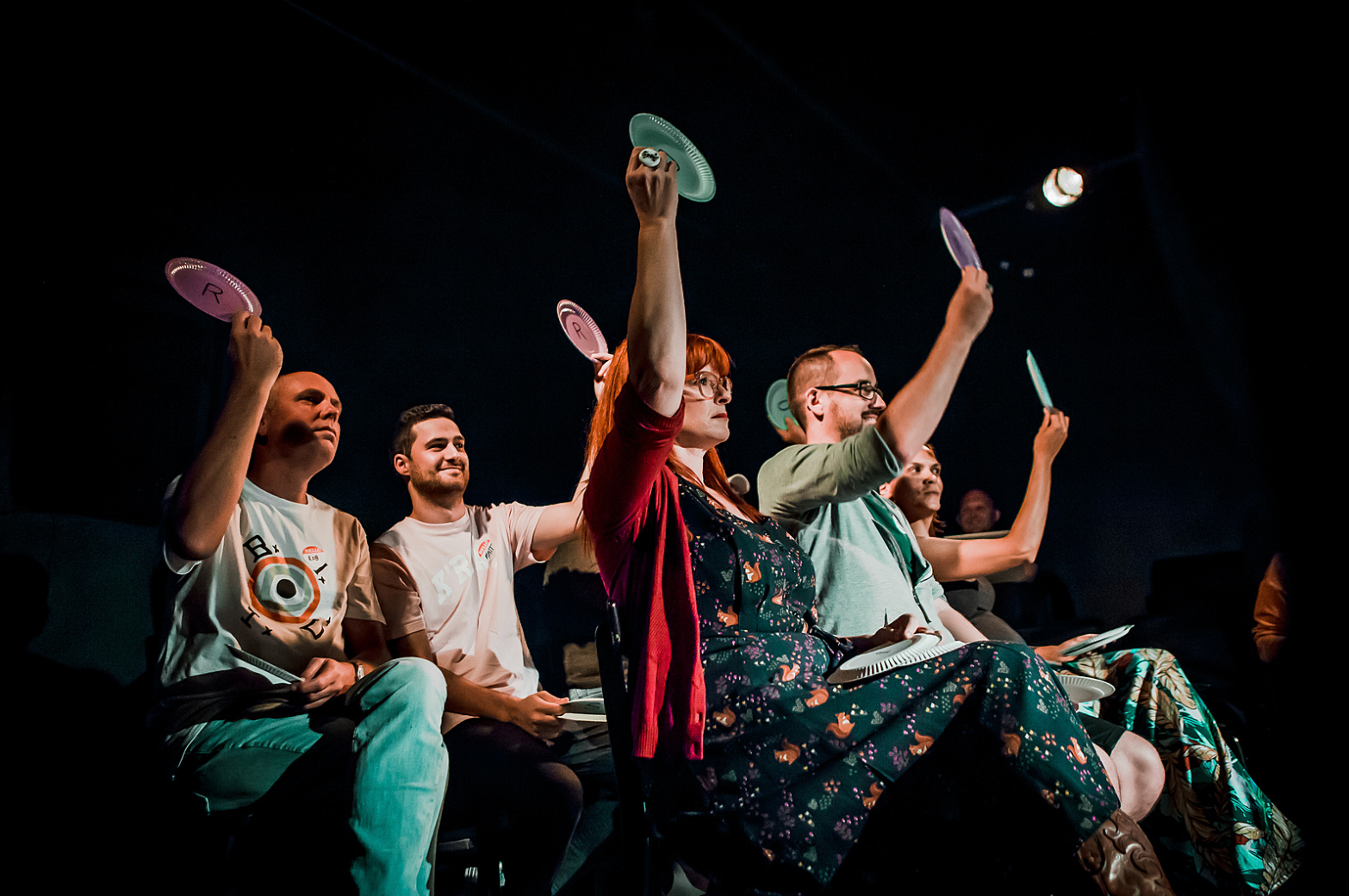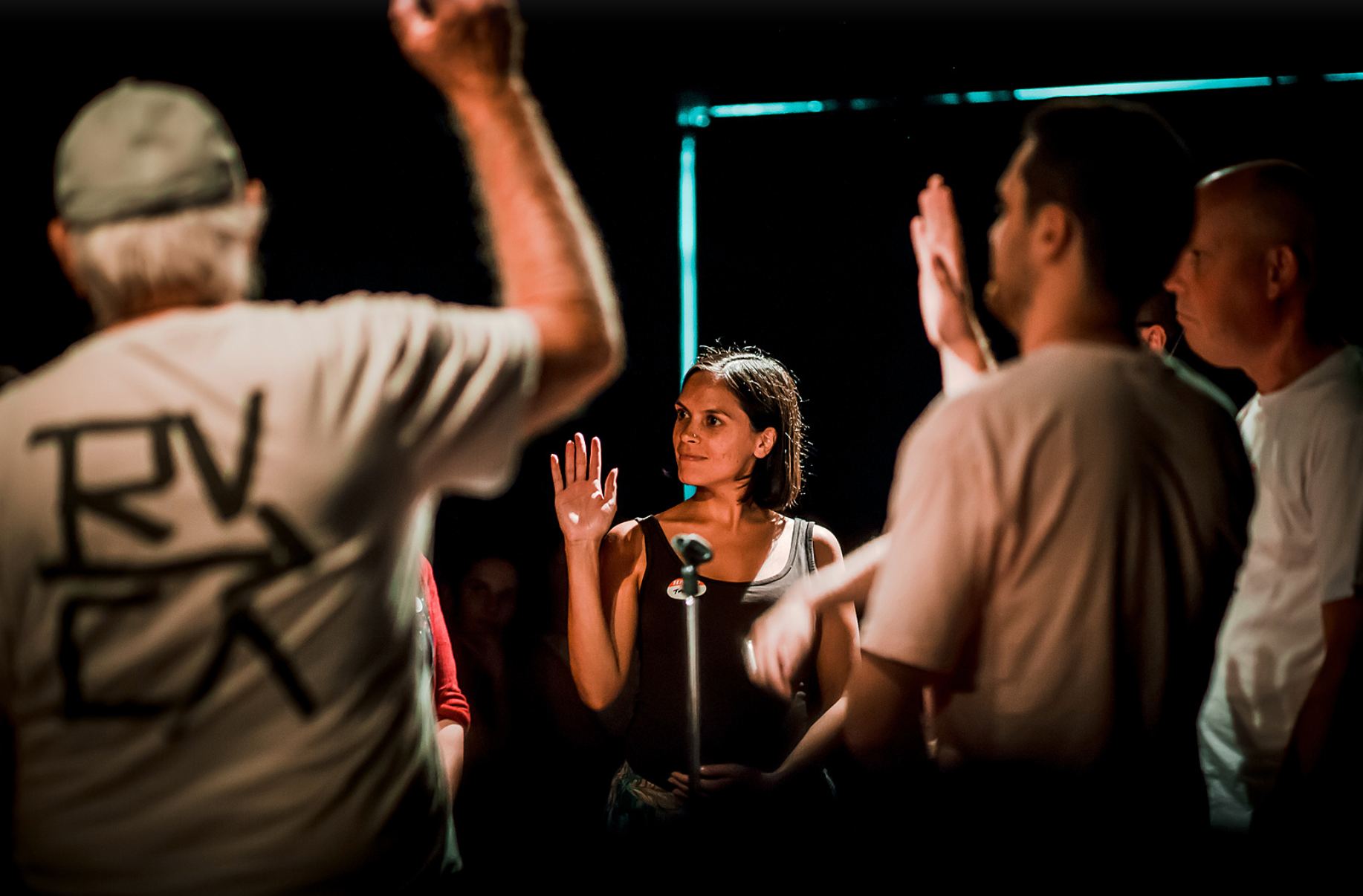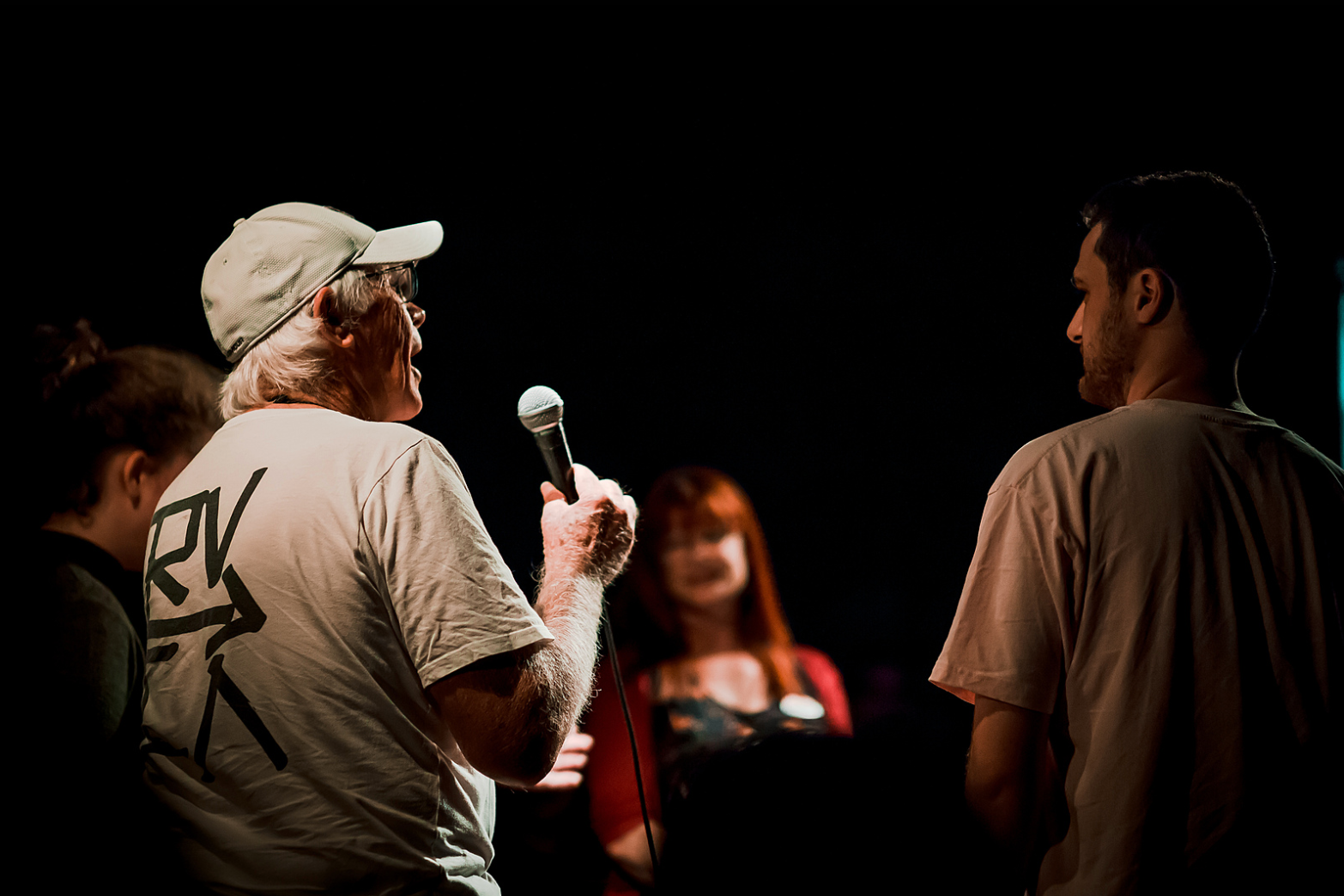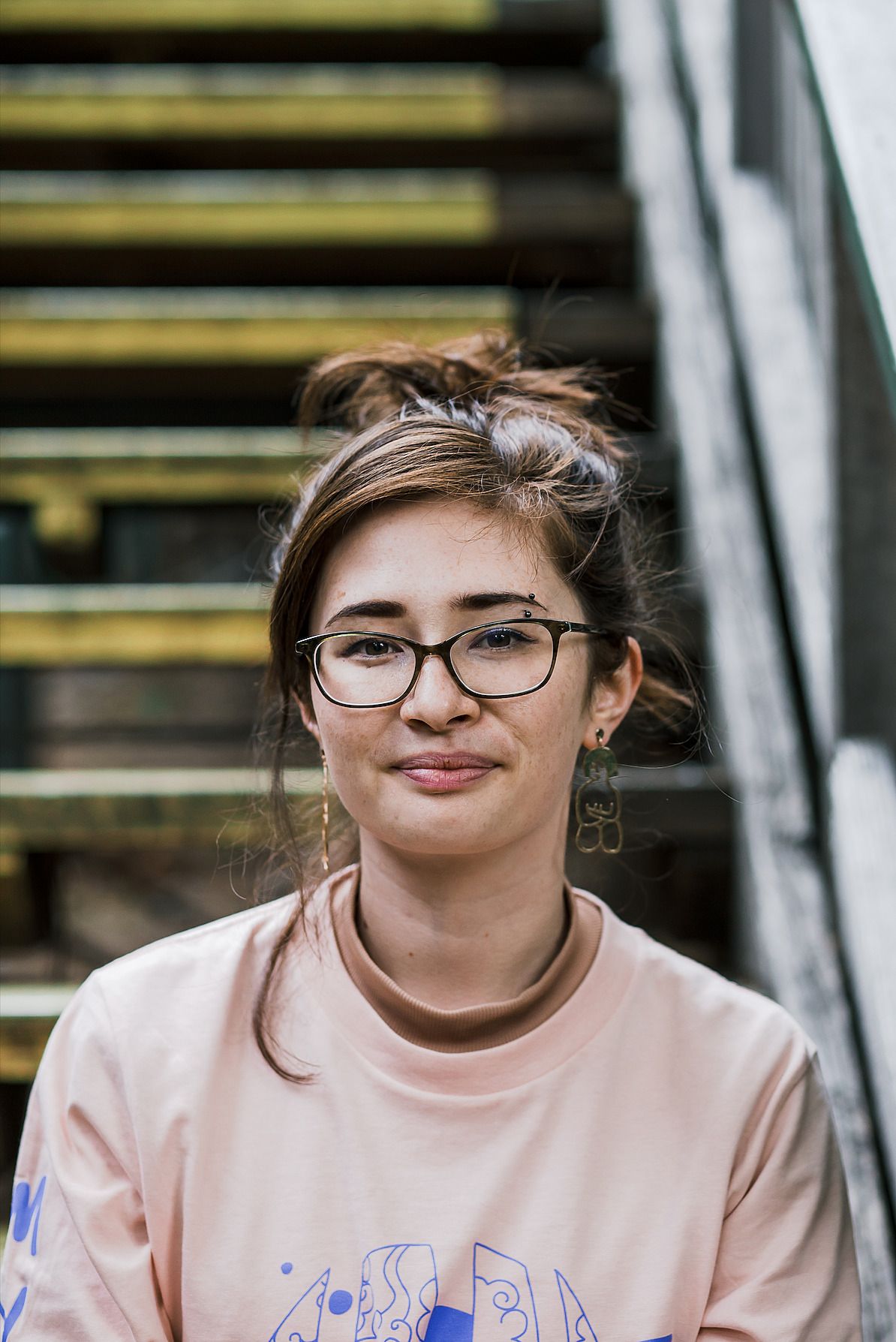Making Art With Strangers
Van Mei talks with Alice Canton about Year of the Tiger and why the stories of ordinary strangers are more compelling than ever.
What stories need to be told, in the arts? Who needs to tell them?
Van Mei sits down with Alice Canton to talk about her new show Year of the Tiger and why the stories of ordinary strangers are more compelling than ever.
The year 2020 has started brutally for the world, especially for people clinging to the hope that art can still change something. Between the coronavirus outbreak, the Australian bushfires, massive floods in Jakarta and Egypt, plus the decaying politics of current governments, it’s hard to hold onto the hope that art can shift our current circumstances. In fact, I’m not sure if art is even achieving the simpler goal of conjuring up an accurate, accountable reflection of where we’re at in the world.
It’s hard to believe that art can do anything right now except market itself as a false antidote. Maybe I’ve just been in a depressive episode, faced with a low bank balance, or maybe I feel like even the efforts to diversify the faces on our screens are like flimsy distractions from rectifying imbalances that are much larger than face value. It’s been a lot. We’re tired. I have found myself in the midst of an emotional quagmire, watching show after show tackling mental health and gender and politics and climate change. I've felt mostly disaffected and disappointed, waiting for the conversations on stage to lead us somewhere further than the conversations off-stage have been able to. What good can we as artists do, beyond shallow attempts at chorusing the masses?
I’d like to think that every single work I make is starting from a place of, like, ‘the world is so fucked’.
That feeling of doom is at the fore of my mind as I chat with artist and theatre-maker Alice Canton about her new show. In Year of the Tiger Canton connects herself onstage with a set of strangers, and facilitates discussions between so-called ordinary people. This form of live social practice isn’t the only thing in her oeuvre, but it is a point of difference between her and others of her calibre making theatre in Aotearoa. Her work, which leads non-actors through live participatory processes, has a ring of hope and truth to it that I feel invested in and attracted to. These are not necessarily emotions I typically feel after watching shows.
“I’d like to think that every single work I make is starting from a place of, like, ‘the world is so fucked’,” says Canton, when I ask about her motivations. “What the fuck are we doing if Australia is on fire? Are we as artists just useful to put on fundraising concerts so people can go watch a person play the guitar, and then donate money? Is that the only way we are useful?”
Year of the Tiger asks and answers this question indirectly. Canton’s part-documentary-theatre, part-social-practice show follows on from the well-received OTHER [chinese] and Children Talk About, and pushes strangers from different age brackets and social spheres together. The connection between the strangers is that they all belong to the same Eastern zodiac sign, the Tiger. The Eastern zodiac is composed of 12 animals that cycle every 12 years, meaning that the age gap between participants could range from 12 to 72 years. Canton is interested in the ways people self-determine meaning for themselves, and how these arbitrary-to-some connections lead to discussions about the way we group ourselves and also see one another.
Is there any basis to the idea that the year we are born, let alone our birth month, governs our destiny or identity? According to the internet, Tigers are born leaders or perhaps born fitness instructors, being “courageous and active people who love a good challenge”. Drake is a Tiger. So are Tom Cruise and Queen Lizzie II. There’s an element to Canton’s theatre practice that is trying to untangle our relationship to the role of the individual in a wider context; something that astrology has been doing for centuries. Canton’s practice invites strangers to see themselves and each other measured against common personality traits – like being ‘headstrong’ – and similarly, against intergenerational and intercultural politics. It’s a form of comparison that favours leaning in rather than pushing out: the choreography of placing our bodies next to other bodies and seeing where we fall.
When I chat to her, the awareness of the current global crisis is emphatically present. Canton has just come back from Australia, where she had been promoting a show for the Australian Performing Arts Market (APAM). Discussions over drinks, with global and regional stakeholders, were held in hotel lobbies while the bushfires raged on.
What can we as artists do, instead of just writing a fucking climate-crisis play?
Canton isn’t afraid of tackling the currency or redundancy of an artist. Through the crafted telling of ordinary stories, she posits that we have a better vantage point from which to see ordinary hopes for the future. “How can we solve this whole fucking burning type of shit that we’re in right now?” she asks. It’s a big question, one I don’t have a straightforward answer for. “What can we as artists do, instead of just writing a fucking climate-crisis play? There’s got to be the sort of sweet spot in the centre of that, where an ability to suspend people’s belief or disbelief for 60 minutes in a theatre lends itself to something.”
Our identity as artists has some ascribed meaning to us as individuals, but the agency we can create for others isn’t always directly clear. It’s not that there isn’t something present in what we do. Nor, in fact, do I think should there have to be. I don’t think art-making as a job has to always be consciously political to deserve its existence. Our forms of labour shouldn’t have to be so closely tied up to our moral values; we all need to find ways to feed ourselves. But the tides are changing, and also rising. Most of us would like to ascribe meaning to our actions, especially if creative and content-based work makes up the bulk of our meaningful time on earth.
“One of the conversations that was pretty urgent at APAM this year,” says Canton, “was this question of resource – why are some organisations spending hundreds of thousands of dollars flying artists all around the world to present their work? The carbon footprint is just eye-watering.” Alice Canton was surprised by the strong presence and awareness of that conversation in the market, but I suppose there’s not much more time left on a dying planet to be dallying around with things. If we assume that artists should be socially aware citizens, then we have to be critical of our models of creating and exhibiting. The amount of material waste that ends up being thrown out of the theatre at the end of a stage production, or the amount of petrol you can burn through touring a show, can feel astronomically wasteful. That conversation isn’t relegated only to materials, either, but also to content and purpose. Is it true that some stories, right now, hold more weight and relevance that others?
For Canton, this is the sticky place where the notion of the community in practice comes in. It’s not that she doesn’t have space in her practice for actors, and it’s not as if conventional plays can’t be effective. But when it comes to the kinds of stories that she wants to tell at the moment, “actors are kind of useless to me ... I feel like I’m really limited if I only invite actors in to devise around these ideas like climate change or generational politics. I’m interested in working with real people to figure out that content. Then nine times out of ten I just feel like, well you as a person are just really interesting, so why don’t you just do it now?”
At the preview of Year of The Tiger, Alice Canton – effortlessly cool in gold hoops and a grey cap – invites seven Tiger participants on stage to “just do it now”, and see what they might make of each other. They range from a part-time fisherman, an opera singer, a friend’s girlfriend, a home-owner. I was surprised by how quickly I found myself forming biases about the participants from the backseat throne of the audience, and similarly how little it took to shake my initial opinions. It seems obvious, but being asked to sit and listen to others answering honestly curtails the instinct to close off and maintain prejudice. You just naturally end up feeling curious.
The particular dynamics of a theatre force you to stay long enough in a room with another person that you might just end up changing your opinion about them
Perhaps my intrigue is as a participant in an earlier show – it’s not often in our day-to-day lives that we ask more honest and probing questions of one another. Nor do we usually feel motivated to listen to these sorts of answers, be they from strangers or close friends. But the particular dynamics of a theatre force you to stay long enough in a room with another person that you might just end up changing your opinion about them.
A few years ago, I was a member of OTHER [chinese], which canvased a group of Chinese and Chinese-heritage individuals about our relationship to identity. It used the same sociometric choreography now present in Year of The Tiger, but asked questions specific to being Chinese in New Zealand. We told the stories of ourselves that there hadn’t been space for, in our daily worlds. We listened and laughed and cried together about shame and loss and slippers. Being in that process changed my life. It feels hyperbolic to use the word ‘change’, but things definitely shifted for me after being a part of that process. It unstuck my relationship to language, as well as the threatening shame I felt sitting in a large group of Asian people.
“It’s incredibly thrilling and novel to lead someone creatively through a process,” says Canton. She thinks the element of social practice simply comes from teaching for her entire career. “I’ve been teaching since I started working in the theatre, in 2003. And that’s always been a natural path for me.” Teaching in this instance isn’t about having the knowledge and solutions to hand to others, but about facilitating dynamic frameworks for people that foster curiosity and learning. “I know that I’m able to succeed with my students. It feels like it’s a natural progression to want my audience to go through that same thing, by watching one of my shows.”
In her Loose Canons profile, Canton cites RED, a documentary theatre performance by Wen Hua, as one of the key inspirations behind her current practice. She saw RED while on a residency in China. The show weaves together interviews, essays and anecdotes with contemporary choreographic practice. “The ideas alone are a perfect intersection of language, traditional art, politics and filmmaking. But it was the form that set me on fire – the action of experiencing people; real, strong, vulnerable people – transforming ‘notions’ of the social and political into embodied storytelling.”
Will working with non-actors save the world?
If scientists were compelling storytellers, then would we have listened to their advice 30 years ago? Would a show about climate change be any good if it were made by scientists? There’s a complexity to the paradox between what stories need to be told, who is telling them and how they are crafted. Alice Canton straddles that contradiction, imperfectly but successfully.
In his expansively researched book The New Zealand Project, Max Harris cites curiosity as one of the pillars of a values-based society we should aim for. I think it’s what makes the experience of Year of The Tiger feel successful to me, no matter if not all participants believe in astrology by the end of the night (they should). The cross-pollination between age groups and personalities present feels rare. We’re very stratified and self-contained in our satisfying little bubbles. But this space of serendipity, one that encourages the unscripted, is charged with the allure and risk of being wrong about everything.
Will working with non-actors save the world? It’s not necessarily fair to project onto a group of people that they will solve the crises of the world simply by being on stage together. “But that’s definitely the set-up,” says Canton. “What might happen if we all sit around, talk to each other and listen? It’s more of a what-might-happen than a this-will-happen.”
Year of the Tiger was performed at Basement Theatre, 10–16 March 2020.
Due to the current Covid-19 situation, on 17 March 2020 creator Alice Canton made the decision to postpone the remaining performances of The Year of the Tiger for the safety of all involved.




